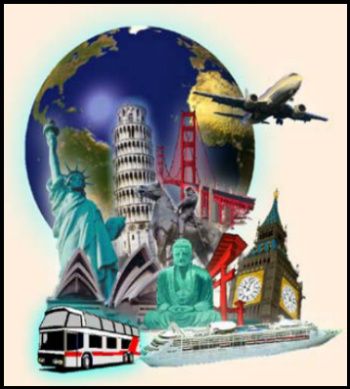- Blogs
- Gruenewald
- The 50 Greatest Travel Web Sites
The 50 Greatest Travel Web Sites
If you have not ever caught the train down to Brighton to eat fish & chips on the pier, 2016 is definitely the year to do it.
 MaramureČ™ is a wooden globe. The farm tools are made of wood, and wooden gates, chiseled with century-old motifs, form the glorious entrances to modest yards around wooden, steep-roofed homes. UNESCO-designated churches from the 17th and 18th centuries tell stories of faith and glory, saints and sinners, crime and punishment, via still vivid paintings on their wooden walls.
MaramureČ™ is a wooden globe. The farm tools are made of wood, and wooden gates, chiseled with century-old motifs, form the glorious entrances to modest yards around wooden, steep-roofed homes. UNESCO-designated churches from the 17th and 18th centuries tell stories of faith and glory, saints and sinners, crime and punishment, via still vivid paintings on their wooden walls.
How to Get About: Baia Mare is the region's biggest town and its transportation hub. From Bucharest, the quickest choice is the 85-minute direct flight to Baia Mare International Airport Rent a auto at the airport to travel planner regionally, and walk, hike, or bike in villages and rural places. The English-speaking employees at the MaramureČ™ InfoTurism workplace in Baia Mare (open weekdays) can give biking, driving, and hiking itineraries, plus data about public transportation and bike rentals.![]()
Exactly where to Remain: Modest, loved ones-run guesthouses are positioned in several villages. Rates typically include breakfast or all meals. The Village Hotel in Breb has three guest rooms in the major property and 3 tiny cottages, every restored or constructed employing reclaimed nearby supplies. Owners Duncan and Penelope Ridgely, who began establishing the bucolic Village Hotel compound in 2007, are as close to neighborhood as British expats in MaramureČ™ can get. In addition to lodging, the Ridgelys can arrange biking and walking tours.
Where to Consume or Drink: The Casa Iurca de Calinesti hotel, situated subsequent to Elie Wiesel's birthplace in Sighetu Marmatiei, has an adjacent restaurant supplying classic MaramureČ™ tastes, such as palinca (fruit brandy) and ciorba de burta (tripe soup). Climate permitting, sit in the courtyard and watch the chefs spit-roast a entire lamb or pig more than the open fire or grill vegetables, sausages, and trout on the hearth.
